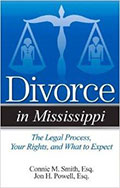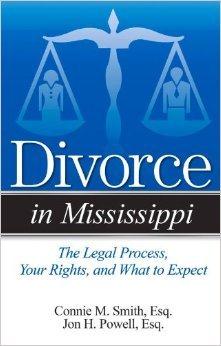WINTER 2014/2015 ISSUE
FEDERAL ADVERTISING GUIDELINES FOR BUSINESSES
The Federal Trade Commission Act prohibits advertising that is untruthful, deceptive, or unfair, and it requires advertisers to have evidence to back up their claims. There are also other federal laws applicable to advertisements for specific types of products and state laws that apply to ads running in particular states.
Unfairness
An advertisement is unfair if it causes "consumer injury." The Federal Trade Commission (FTC) uses a three‑part test to determine if a consumer injury has occurred or is likely to occur as the result of an advertisement: (1) the injury must be "substantial"; (2) the injury must not be outweighed by any offsetting consumer benefits; and (3) the injury must be one that consumers could not reasonably have avoided. An injury may be substantial because of monetary harm or unwarranted health and safety risks. More subjective effects, such as offending the tastes or opinions of consumers, generally will not constitute a substantial injury. The FTC will also consider whether a challenged practice violates established public policies and whether the conduct is immoral, unethical, oppressive, or unscrupulous in deciding whether it is unfair.
The Act recognizes that, in general, the government expects the marketplace to be self‑correcting, with informed consumers making purchasing decisions without regulatory intervention. The FTC may step in, however, when sellers use practices that distort free market decisions, such as by withholding critical information from consumers or pitching questionable products to highly susceptible and vulnerable classes of purchasers such as the terminally ill.
Deception
An ad is deceptive if it contains a statement or omits information that is material and is likely to mislead consumers. Information is material if it is important to a consumer's decision to buy or use a product. Examples include representations about a product's performance, features, safety, price, or effectiveness.
The FTC will scrutinize an ad for deceptiveness from the point of view of the typical consumer who sees it. The focus is on the whole context of an ad, rather than whether certain words are used. Sometimes what an ad does not say is most important. If the ad is for a collection of books, it is deceptive to withhold from consumers the fact that they will receive only abridged versions of the books. An ad that says "this product prevents colds" and one that says "this product kills germs that cause colds" both claim to prevent colds, but the first claim is expressed, and the second is implied. The FTC expects an advertiser to be able to back up both types of claims with proof and to have such proof before an ad runs.
Backing It Up
Substantiation of a claim in an ad means that there must be a reasonable basis for the claim in the form of objective evidence. The kind and amount of evidence depend on the claim, but at the very least the advertiser must have the level of evidence it purports to have. If the ad boasts that "two out of three doctors" recommend a product, the advertiser must be able to produce a reliable survey to prove the claim. For more general representations, the required level of proof is determined by factors such as what experts in the field think is necessary. Health and safety claims, in particular, must be supported by competent and reliable scientific evidence. As flattering as they may be, testimonials from satisfied customers usually are insufficient to substantiate a claim requiring objective evaluation.
Comparative Ads
The policy of the FTC actually is to encourage the naming of or reference to competitors, so long as there is clarity and such disclosure as may be needed to avoid deception of the consumer. Even ads that disparage the competition are permitted if they are truthful and not deceptive. The FTC requires neither less nor more substantiation for comparative ads than for other advertising.
Enforcement
The FTC marshals its resources in order to pay closest attention to ads that make claims about health or safety ("Acme water filters remove harmful chemicals from tap water"), and ads that make claims that consumers would have difficulty checking out for themselves ("ABC hairspray is safe for the ozone"). The FTC also concentrates on national rather than regional or local advertising, patterns of deception rather than isolated disputes, and cases that pose the greatest threats of widespread economic injury.
Depending on the nature of the violation, the FTC or the courts can choose from a variety of remedies. These include cease and desist orders, civil penalties, orders to make refunds to consumers, and informational remedies such as running a new ad to correct misinformation in the original ad. Other federal legislation allows businesses to sue competitors for making deceptive claims in advertising.
CASE BY CASE
Bait‑and‑Switch Credit Card Offer
In a variation on the typical "bait‑and‑switch" scheme, a bank made a promotional offer of a "no annual fee" credit card, then changed the terms mid‑year to require such a fee. A credit card holder sued the bank under the federal Truth in Lending Act (TILA). She alleged a violation of the requirement in TILA that an issuer of a credit card disclose the terms of the card accurately and without misleading statements. A federal court allowed the lawsuit to continue.
Both the advertisement soliciting customers for the credit card and the card holder agreement stated that no annual fee would be charged, but the agreement also stated more generally that the bank had the right to change any of the terms at any time. The bank maintained that the latter provision gave it the right to impose an annual fee whenever it wanted.
In ruling for the credit card holder, the court found that a reasonable consumer was entitled to assume that the issuer of the credit card would refrain from imposing an annual fee for at least one year. Given the apparent intent of the bank to begin an annual fee after the "bait" had been taken, the statement of "no annual fee" was misleading and in violation of TILA. If the bank had wished to reserve the right to impose an annual fee later, notwithstanding the "no annual fee" solicitation, further clarification would have been necessary to comply with TILA.
Casino Cheats Gambler
Steven was a multimillionaire businessman with a fondness for high‑stakes gambling. His reputation as a high roller led a Las Vegas resort to recruit him to gamble at the grand opening of its new casino. The enticement from the casino was a $2 million line of credit.
When Steven was just getting warmed up in what figured to be a long stretch of gambling, casino officials informed him that he had used up the line of credit, plus several million dollars of his own money. Steven had been gambling not with chips but with a "player card," and cameras had been recording his betting results. He strongly disputed how much in the red he really was, but the casino made him leave the premises.
Steven sued the gaming company that operated the casino, and a jury added more millions to his net worth. He convinced the jury that the casino's goal on opening night was to improve its bottom line by forcing him to quit while he was in the hole. The casino officials knew that an experienced gamer like Steven could recoup his losses, and then some, in the same night, so they created the conflict over the amount of the gambling debt as an excuse to ask Steven to leave. This breached the agreement between the parties.
Evidence of underhanded tactics of the casino no doubt made an impression on the jury. Steven produced gambling debt invoices that the casino had generated even before he began to gamble. The videotapes from the night in question, which were key to proving just how much gambling debt Steven had incurred, had been destroyed by the casino. These tactics cast a cloud of suspicion over the casino's version of the events.
ARBITRATION CLAUSES IN EMPLOYMENT CONTRACTS
The Federal Arbitration Act requires courts to enforce clauses in commercial contracts that require arbitration of disputes. The U.S. Supreme Court has ruled that transportation workers engaged in interstate commerce are exempt from the Act. For other types of workers, the effect of the Supreme Court ruling was to reaffirm the enforceability of mandatory arbitration provisions in agreements entered into by workers engaged in interstate commerce.
Interstate Commerce Requirement
The Act's requirement that workers be engaged in interstate commerce is not especially difficult to meet, given the interconnectedness of the economy. When a nurse at a hospital tried to avoid binding arbitration of her wrongful discharge claim by arguing that her employment agreement had no impact on interstate commerce, the argument failed. The court pointed out that the nurse's employment depended on the constant use of supplies purchased from other states and that the hospital treated many out‑of‑state patients. More often than not, similar connections can be made between most jobs and the flow of interstate commerce, especially for large employers.
Level Playing Field
To say that employers and employees generally may bind themselves to arbitration is not to say that there is no judicial oversight. In the time since the Supreme Court cleared the way for mandatory arbitration, courts have been occupied with creating a level playing field when employers make the signing of an arbitration agreement a condition of employment. If its terms weigh too heavily in favor of the employer, the agreement, or at least the offending part, may be ruled invalid.
Finding that an arbitration agreement was "utterly lacking in the rudiments of evenhandedness," one federal court refused to enforce an agreement that allowed only the employer to choose the panel from which an arbitrator would be selected. Supposedly the parties were to achieve a fair result by using an alternate strike method to arrive at one arbitrator, but, given that the whole pool was selected by the employer with no constraints, "an impartial decisionmaker would be a surprising result." It may be possible to avoid this particular defect by stating in the agreement that the parties will use an arbitration service that takes measures to find an unbiased arbitrator having no potential conflicts of interest.
Paying the Costs
Splitting the costs of arbitration evenly between the parties may seem reasonable on its face, but some courts have invalidated such clauses as being too burdensome for individual employees. Aside from considering the respective abilities of the parties to pay what can sometimes be substantial up‑front costs for arbitration, there is a concern that the prospect of shouldering those costs has a "chilling effect" on employees' rights to have their grievances heard. Alternative approaches include payment of all costs by the employer, waiver of the employee's share on a case‑by‑case basis if it is beyond the employee's means, or capping an employee's share at the level of costs that would be incurred in court.
To Arbitrate or Not?
Even before an arbitration clause is agreed to, and perhaps later scrutinized by a court, the parties need to consider some distinctions between mandatory arbitration and litigation. Since it is easier to request arbitration than to file a formal complaint in court, use of arbitration may mean an increase in disputes to be resolved. A decisionmaker in arbitration, if he or she is familiar with the industry in question, could understand complex issues better than a jury would. In arbitration, the dispute itself and the terms of any award frequently are kept confidential, affording the parties more privacy than a trial in open court. Finally, some of the same features that make arbitration a simpler and more streamlined approach, like limited factfinding and having no right to appeal, could weigh in one party's favor and against the other, depending on the circumstances of the case.
EMPLOYMENT LAW GUIDEBOOK
The U.S. Department of Labor publishes a guidebook to provide businesses with general information on the laws and regulations that the Department enforces. The guidebook describes the statutes most commonly applicable to businesses and explains how to obtain assistance from the Department for complying with them.
The authority of the Department of Labor extends to many statutes, but the following are several that affect most employers: Employee Retirement Income Security Act (ERISA); Occupational Safety and Health Act (OSHA); Fair Labor Standards Act (FLSA); and Family and Medical Leave Act (FMLA).
The Employment Law Guide: Laws, Regulations and Technical Assistance Services can be accessed at www.dol.gov/compliance/guide.
LIFE INSURANCE CAN BE PART OF YOUR ESTATE PLAN
Even if you have a relatively modest estate, life insurance can be an important aspect of estate planning for the obvious reason that it can substantially increase the value of your estate. Where the death of a person is premature and a young family is in need of support, life insurance may be the primary means for the family's financial survival.
Even in larger estates, life insurance can be useful by providing the liquidity necessary to pay estate taxes and expenses without the necessity of selling off assets that a family would prefer to keep intact. Additionally, life insurance, unlike many other assets, does not have to go through a time‑consuming administrative process before it becomes available to beneficiaries. Therefore, life insurance can be an immediate source of funds for a surviving family.
Estate Taxes and Life Insurance
As is true of any aspect of estate planning, one objective is to minimize the federal estate tax effect that life insurance can have. The primary tax issue that arises is whether the insurance proceeds are included in the estate for federal estate tax purposes. Including the proceeds could generate additional estate tax liability and reduce the amount of the proceeds that are available to the decedent's heirs.
The fundamental rule is that the gross estate will include the value of life insurance proceeds if (1) the proceeds are payable to the decedent's estate and are thus receivable by the executor, or (2) the proceeds are payable to other beneficiaries, but the decedent possessed at his or her death any of the "incidents of ownership" with respect to any policy.
The term "incidents of ownership" is defined more broadly than to be limited to the legal ownership of the policy. The term includes the power to change the beneficiary, to surrender or cancel the policy, to assign the policy or pledge it for a loan, and to obtain a loan from the insurer against the surrender value of the policy. There are other indirect ways that the decedent can be found to possess incidents of ownership. For instance, if the decedent is the controlling shareholder of a corporation that possesses an incident of ownership, such possession is attributed to the decedent.
Another scenario that will result in the inclusion of life insurance proceeds in the decedent's estate arises under certain circumstances where the decedent was the initial owner of the policy but transferred such ownership to another person or entity within three years of his or her death. Thus, even where the decedent has rid himself or herself of all incidents of ownership in the policy, there is still the possibility of inclusion under this three‑year rule.
Keeping Life Insurance Proceeds Out of Your Estate
A common device for handling the life insurance aspect of an estate plan is the life insurance trust. Typically, a person would initiate the life insurance coverage by acquiring the policy. He or she would then transfer all incidents of ownership of the policy to a previously created irrevocable trust, which would be the named beneficiary on the policy. Assuming that the person survived until at least one day more than three years after the transfer of the policy to the trust, there would be no inclusion of the proceeds in the settlor's estate. If a policy is transferred within three years of death, the proceeds are included in the estate.
If the trust itself acquired the policy, the person would never be the owner and the three‑year rule would not apply. The problem would be that the person could neither direct nor require the trust's acquisition of the policy without risking the possibility that he or she would be regarded as the original owner of the policy for purposes of applying the three‑year rule. Therefore, it is important that the trustee be completely independent of the decedent.
An insurance trust can also have the practical effect of serving as a means of coordinating the collection, investment, and distribution of the proceeds of several policies. An insurance trust can hold other assets that the decedent transferred to it during his or her life. The trust can also receive assets "poured over" to it by the decedent's will.
If life insurance is to be an element of your estate plan, it should be carefully integrated with the other aspects of the plan. Be sure to seek the guidance of a qualified professional to assist you.





